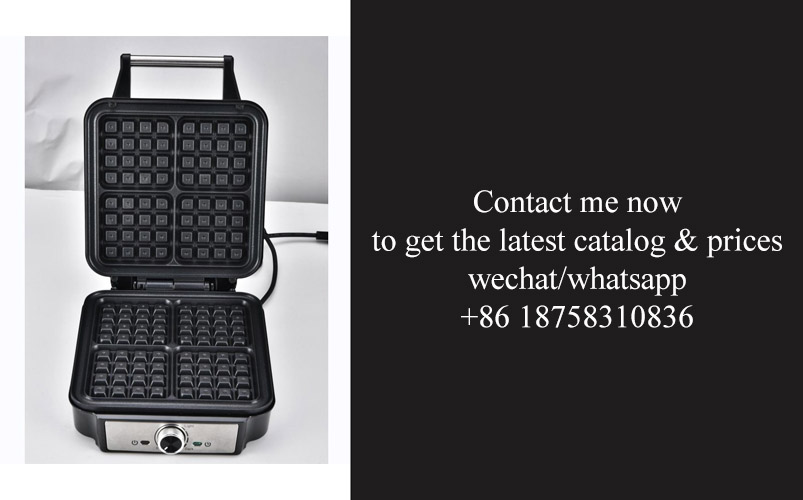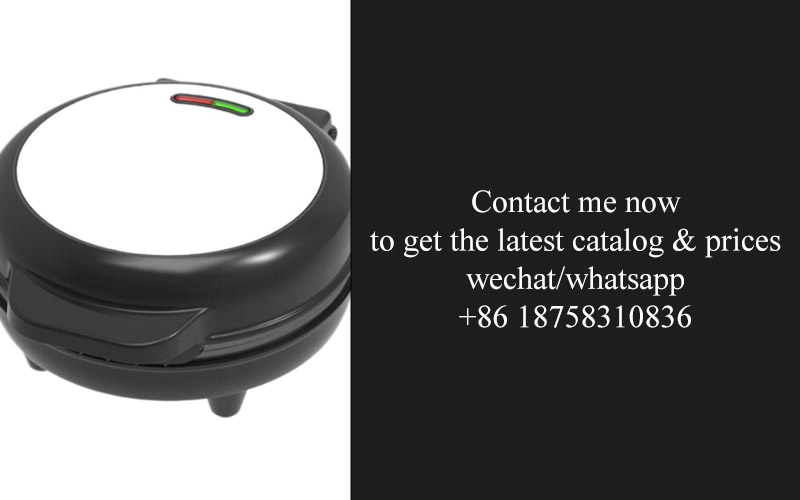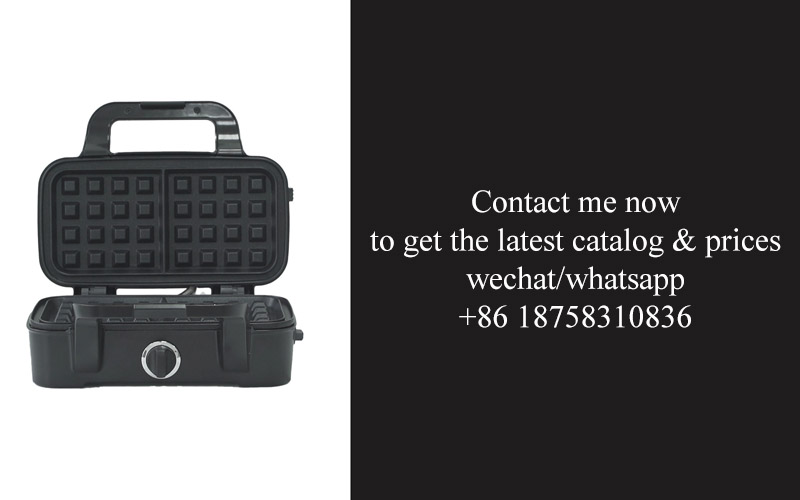Address
304 North Cardinal
St. Dorchester Center, MA 02124
Work Hours
Monday to Friday: 7AM - 7PM
Weekend: 10AM - 5PM
Address
304 North Cardinal
St. Dorchester Center, MA 02124
Work Hours
Monday to Friday: 7AM - 7PM
Weekend: 10AM - 5PM

In today’s interconnected global market, the landscape of compliance and certification is continually evolving. For businesses looking to expand into the EU market, understanding and navigating the complexities of certification processes like UKCA (United Kingdom Conformity Assessment) is paramount. This article delves into the intricacies of a turnkey UKCA certification strategy, offering insights into how it can unlock opportunities and ensure seamless market entry for EU-bound appliances.
The Shift in European Compliance: Understanding UKCA
The European Union has long been a beacon for harmonized standards and regulations across various industries. However, with the UK’s departure from the EU, a new era of compliance has emerged, particularly for manufacturers looking to enter the EU market. Central to this new landscape is the UKCA (United Kingdom Conformity Assessed) marking, which has become a critical aspect of compliance for products originating from the UK.
The UKCA mark replaces the CE marking that was previously required for all products sold within the EU. While the CE mark was a symbol of compliance with EU regulations, the UKCA signifies adherence to UK standards and regulations, which may differ from those of the EU. This shift is not just a change in labels but a fundamental alteration in the certification process for products seeking entry into the EU market.
Understanding the intricacies of UKCA is essential for businesses that have traditionally relied on the CE mark. The UKCA marking is designed to ensure that products meet the necessary safety, health, and environmental protection requirements set by the UK government. This new certification process reflects the UK’s independent stance on regulations and its commitment to maintaining high standards even outside the EU.
One of the key differences between the CE mark and the UKCA is the scope of regulations that each covers. The CE mark encompassed a wide range of EU directives, while the UKCA is more focused on UK-specific regulations. This means that products that previously carried the CE mark may now require additional assessments or modifications to comply with UKCA standards.
The UKCA certification process involves several steps, each designed to verify that a product meets the necessary requirements. Manufacturers must ensure that their products undergo testing and evaluation by an authorized body, which then issues the UKCA mark. This process is not only about meeting safety standards but also about demonstrating that the product has been manufactured in accordance with UK regulations.
For businesses that are new to the UKCA process, it can be daunting to navigate the complexities. The UKCA mark is required for a wide array of products, from electrical appliances to medical devices, and each category has its own set of regulations. This is where the expertise of industry professionals becomes invaluable.
One of the challenges of the UKCA marking is the requirement for conformity assessment bodies (CABs) to be UKAS (United Kingdom Accreditation Service) accredited. This means that the assessment process is rigorous and ensures that the UKCA mark is a reliable indicator of product compliance. The UKAS accreditation process is stringent, and only those bodies that meet the highest standards are authorized to issue UKCA marks.
Another aspect of the UKCA marking that requires attention is the potential for changes in regulations. As the UK continues to evolve its standards, manufacturers must stay informed about any updates that could affect their products. This ongoing requirement for regulatory knowledge adds an additional layer of complexity to the certification process.
Despite these challenges, the UKCA marking offers several opportunities for businesses. For those looking to enter the EU market, obtaining the UKCA mark can be a stepping stone towards compliance with EU regulations. The process also encourages manufacturers to focus on quality and safety, which can enhance their reputation and competitiveness.
The shift to UKCA certification is a significant milestone in the EU market entry process. It requires a proactive approach from manufacturers to ensure that their products meet the new standards. By understanding the UKCA marking and the steps involved in obtaining it, businesses can position themselves to capitalize on the opportunities that arise from this new regulatory landscape.
In conclusion, the transition from the CE mark to the UKCA mark is more than just a change in labels; it represents a fundamental shift in the way products are certified for the EU market. Understanding the nuances of UKCA certification is crucial for businesses aiming to maintain compliance and access the EU market effectively. With the right guidance and preparation, the UKCA marking can be a powerful tool for businesses to navigate the evolving compliance landscape and succeed in the EU market.

The European Union’s regulatory landscape has undergone a significant transformation, and for manufacturers of appliances looking to enter the EU market, this shift is nothing short of pivotal. The introduction of the UKCA (United Kingdom Conformity Assessment) mark is a direct response to the changing requirements post-Brexit, and it’s a game-changer for EU-bound appliances.
The UKCA certification serves as a testament to an appliance’s compliance with the EU’s stringent safety and environmental standards. It is now a mandatory requirement for all products that are to be sold in the EU market, and its importance cannot be overstated. Here’s why:
Ensuring Safety Standards: The EU is renowned for its rigorous safety regulations, and the UKCA certification is designed to maintain these high standards. From electrical appliances to kitchen gadgets, every product must undergo thorough testing to ensure it does not pose a risk to consumers. This not only protects end-users but also builds trust in the brand.
Compliance with EU Directives: The UKCA mark is directly tied to the harmonized EU directives, which cover a wide range of product categories. These directives outline the essential requirements that appliances must meet, including health, safety, and environmental protection. By obtaining UKCA certification, manufacturers can rest assured that their products are in line with these directives.
Facilitating Market Access: The EU market is one of the largest in the world, and for many businesses, entering this market is a significant strategic move. UKCA certification is the key to unlocking this market, as it demonstrates that the product has been evaluated against the EU’s standards. Without this certification, appliances could face barriers to entry, leading to delays and increased costs.
Maintaining Product Integrity: The UKCA mark is not just a regulatory requirement; it’s also a symbol of quality and reliability. For consumers, seeing the UKCA mark on an appliance is an assurance that the product has been thoroughly vetted. This can be a crucial factor in the purchasing decision, especially for products that are safety-critical or involve high-value investments.
Addressing Brexit Uncertainty: With the UK’s departure from the EU, there was a period of uncertainty for businesses operating in both markets. The introduction of the UKCA mark was a proactive step by the UK government to clarify the compliance requirements for products destined for the EU. This has provided manufacturers with a clear path forward and has helped to mitigate the risks associated with the transition.
Economic Impact: The need for UKCA certification can have a significant economic impact on businesses. While it may initially require an investment in compliance processes and possibly in updating products to meet the new standards, it can also open up new revenue streams in the EU market. The cost of obtaining certification is often outweighed by the potential increase in sales.
Global Supply Chain Considerations: Many manufacturers source components from across the globe and assemble products in different countries. The UKCA certification ensures that these supply chains remain compliant with EU standards, even when components are not produced within the EU. This is particularly important for businesses that rely on international suppliers and want to maintain a seamless flow of goods.
Long-Term Strategy: For companies looking to establish a strong presence in the EU market, obtaining UKCA certification should be part of a long-term strategy. It not only allows for immediate market access but also positions the brand as a committed player in the European landscape. This can be a valuable asset when competing against local and international brands.
In conclusion, the UKCA certification is a critical component for appliances aiming to reach the EU market. It is not just a regulatory hurdle but a vital step in ensuring product safety, compliance, and market access. For businesses that navigate this certification process effectively, the rewards can be substantial, both in terms of regulatory compliance and market opportunity.

The UKCA certification process, tailored for EU-bound appliances, is a comprehensive and structured system designed to ensure that products meet the stringent requirements of the European market. Here are some key features that make this turnkey solution stand out:
Harmonized Standards Compliance: The turnkey UKCA certification process adheres to harmonized European standards, which are the foundation for product safety and performance in the EU market. This ensures that the appliances are not only compliant but also meet the highest industry benchmarks.
Technical Documentation: A crucial aspect of the turnkey process is the thorough preparation of technical documentation. This includes detailed technical files, safety reports, and user manuals that clearly outline the design, manufacturing, and operation of the appliance. The documentation is crucial for demonstrating compliance with UKCA regulations.
Notified Body Involvement: Engaging with a notified body is a key feature of the turnkey UKCA certification process. These bodies are authorized by the EU to assess and certify products, providing an independent and authoritative verification of compliance. The involvement of a notified body adds a layer of credibility to the certification process.
Conformity Assessment Procedures: The turnkey process involves a series of conformity assessment procedures, which can vary depending on the type of appliance. These procedures may include type testing, production surveillance, and quality assurance audits. The goal is to ensure that the appliance meets all the necessary safety and performance criteria.
Customized Solutions: One of the strengths of a turnkey UKCA certification process is its ability to offer customized solutions. This means that the process can be tailored to the specific needs of the appliance and the manufacturer, whether it’s a small-scale operation or a large-scale production.
Regular Updates and Training: The regulatory landscape in Europe is dynamic, and the turnkey process includes regular updates and training sessions. This ensures that both the manufacturer and the certification body are kept informed about any changes in regulations, standards, or testing procedures.
Cost-Effective Package: A turnkey solution aims to be cost-effective by bundling various services into a single package. This can include not only certification but also technical assistance, market research, and compliance advice. By doing so, manufacturers can avoid the complexities and costs of navigating the certification process alone.
Time Efficiency: Time is a critical factor in bringing a product to market. The turnkey UKCA certification process is designed to be efficient, with clear timelines and milestones. This helps manufacturers to meet their product launch schedules without unnecessary delays.
International Recognition: UKCA certification is recognized across the EU, which means that once an appliance is certified, it can be sold in any member state. This international recognition is a significant advantage for manufacturers looking to expand their market reach.
Post-Certification Support: The turnkey process doesn’t end with certification. It often includes ongoing support to ensure that the appliance remains compliant with EU regulations. This can include regular reviews, updates to documentation, and assistance with any changes in the product design or manufacturing process.
The turnkey UKCA certification process is a multifaceted approach that combines technical expertise, regulatory knowledge, and customer support to help manufacturers navigate the complexities of entering the EU market. By offering a comprehensive solution, it simplifies the certification journey and enhances the chances of successful market entry for EU-bound appliances.

Navigating the complexities of certification can be daunting, especially when it comes to ensuring your EU-bound appliances meet the stringent requirements of the UKCA (United Kingdom Conformity Assessment) mark. Here’s a closer look at the key benefits of adopting a streamlined approach to UKCA certification.
Efficiency in Time Management: The streamlined process for UKCA certification is designed to expedite the time it takes to bring your product to market. By eliminating unnecessary steps and focusing on the essential requirements, businesses can significantly reduce the certification timeline, ensuring quicker access to the EU market.
Cost Savings: A streamlined approach to UKCA certification can lead to substantial cost savings. By focusing on the core aspects of compliance, companies can avoid unnecessary expenses associated with excessive testing or documentation. This targeted approach ensures that resources are allocated efficiently, keeping the overall certification costs in check.
Expert Guidance: A streamlined process often involves the expertise of professionals who specialize in UKCA certification. These experts can provide invaluable guidance, ensuring that your product meets all necessary standards without the need for extensive trial and error. Their knowledge can help you avoid common pitfalls and streamline the certification process from start to finish.
Enhanced Product Quality: A streamlined approach to certification often results in a more rigorous quality control process. By focusing on the key aspects of your product’s design and functionality, you can ensure that it not only meets the UKCA standards but also maintains high-quality standards throughout its lifecycle.
Risk Mitigation: When it comes to certification, risks can be minimized through a streamlined process. By understanding the critical points of compliance and addressing them proactively, businesses can reduce the likelihood of non-compliance issues that could lead to delays or even market withdrawal.
Increased Market Confidence: A product that has undergone a streamlined UKCA certification process is likely to gain greater market confidence. Consumers and businesses in the EU are more likely to trust products that have been certified with efficiency and expertise. This can open doors to new markets and business opportunities.
Flexibility in Compliance: A streamlined approach allows for greater flexibility in how compliance is achieved. This means that businesses can adapt to changing regulations or product updates without disrupting the certification process. It provides a more dynamic and responsive way to ensure ongoing compliance.
Enhanced Customer Satisfaction: By streamlining the certification process, businesses can ensure that their products are available to customers more quickly. This can lead to higher customer satisfaction, as products reach the market faster and meet the expected quality standards.
Regulatory Compliance Assurance: A streamlined process provides a clear path to regulatory compliance. By focusing on the essential requirements, businesses can be confident that their products are fully compliant with UKCA standards, reducing the risk of regulatory scrutiny or fines.
Long-Term Strategic Planning: A streamlined approach to UKCA certification can be a part of a broader strategic plan. By understanding the certification process and its benefits, businesses can better plan for future product development, market expansion, and compliance requirements.
By embracing a streamlined approach to UKCA certification, businesses can navigate the complexities of EU market entry with greater ease and efficiency. The benefits extend beyond just meeting compliance standards; they can lead to improved operational efficiency, cost savings, and a competitive edge in the EU market.

Navigating the complexities of certification for EU market entry can be daunting, but a turnkey solution can streamline the process and ensure both compliance and efficiency. Here’s how a turnkey approach to UKCA certification can make a significant difference:
Comprehensive Support Across the BoardA turnkey solution offers a one-stop shop for all aspects of UKCA certification. This means that instead of dealing with multiple service providers, companies can rely on a single entity to handle everything from initial assessments to final certifications. This holistic support can save time and reduce the administrative burden associated with the certification process.
Expert Guidance ThroughoutWith a turnkey solution, businesses gain access to a team of experts who are well-versed in the intricacies of UKCA certification. These professionals can guide companies through each step, ensuring that all requirements are met and that the certification process is as smooth as possible. Expert guidance can also help companies avoid common pitfalls and costly mistakes.
Customized Solutions for Your ProductsNo two products are the same, and a turnkey solution recognizes this by offering customized support. This means that the process is tailored to the specific needs of each product, taking into account its design, components, and intended use. By providing a bespoke approach, a turnkey solution can ensure that the certification is not only compliant but also optimizes the product’s performance and marketability.
Efficient Documentation and TestingOne of the most time-consuming aspects of certification is the documentation and testing process. A turnkey solution can greatly expedite these steps by having streamlined protocols in place. This includes pre-screening of technical files, organizing and preparing documentation, and managing the testing phase. By having efficient systems, turnkey providers can help reduce the time it takes to get certifications, allowing companies to bring their products to market faster.
Continuous Monitoring and UpdatesRegulations are not static, and staying compliant requires ongoing attention. A turnkey solution ensures that companies are kept up-to-date with any changes in the UKCA certification requirements. This continuous monitoring means that businesses can adapt their products and processes without falling out of compliance. Regular updates and alerts can prevent costly non-compliance issues down the line.
Risk Management and MitigationCompliance with UKCA certification is not just about meeting requirements; it’s also about managing risks. A turnkey solution includes risk assessment and mitigation strategies that help identify potential compliance issues before they become problems. By addressing risks proactively, companies can avoid costly recalls or legal issues that could arise from non-compliance.
Cost-Effective SolutionsWhile the cost of certification can be a concern, a turnkey solution can actually be more cost-effective in the long run. By eliminating the need for multiple providers and streamlining the process, companies can save on administrative fees, travel expenses, and the cost of additional personnel. Moreover, by ensuring a faster and more efficient certification process, businesses can also reduce the opportunity cost of delayed market entry.
Enhanced Brand ReputationCompliance with UKCA certification is not just a regulatory requirement; it’s also a signal to consumers and partners that a product meets the highest standards of quality and safety. A turnkey solution helps maintain and enhance a company’s brand reputation by ensuring that all products are certified and meet the necessary regulations. This can build trust with customers and give a competitive edge in the market.
Simplified Export ProcessFor businesses looking to export to the EU market, a turnkey solution simplifies the export process. By having all necessary certifications in place, companies can navigate customs and border controls with ease, reducing the likelihood of delays and complications. This streamlined export process can lead to more efficient logistics and happier customers.
In essence, a turnkey solution for UKCA certification ensures that companies not only meet the necessary regulatory standards but also do so in a way that is efficient, cost-effective, and sustainable. By providing a comprehensive, expert-led approach, these solutions can help businesses stay ahead of the curve in an ever-changing regulatory landscape.

Navigating the complexities of UKCA certification can be daunting, especially for companies looking to expand into the EU market. That’s where industry experts play a pivotal role, offering a wealth of knowledge and experience to ensure compliance and efficiency. Here’s how these professionals contribute to the process:
Understanding the Regulatory LandscapeIndustry experts are well-versed in the intricate details of the UKCA (United Kingdom Conformity Assessment) certification process. They understand the nuances of the regulations, which often change and can be challenging to keep up with. Their expertise lies in deciphering the requirements and ensuring that products are designed and manufactured to meet these standards.
Customized Guidance for Different ProductsEvery product category has its unique set of compliance needs. Industry experts can tailor their advice to the specific product in question. Whether it’s a kitchen appliance, a piece of electronics, or a medical device, these professionals can provide insights into the relevant regulations and how to meet them effectively.
Technical Assistance and TestingOne of the most critical aspects of UKCA certification is the testing phase. Industry experts can guide companies through the testing process, ensuring that all necessary tests are conducted according to the correct standards. They can also assist with interpreting test results and making any necessary adjustments to the product to pass certification.
Streamlining the Certification ProcessThe certification process can be lengthy and complex. Experts can streamline the process by managing the documentation, coordinating with testing laboratories, and overseeing the entire certification process. This not only saves time but also reduces the risk of errors that could delay certification.
Expertise in Documentation and ReportingCompliance is not just about passing tests; it’s also about providing thorough documentation. Industry experts excel in preparing detailed technical files and reports that are required for UKCA certification. They ensure that all necessary information is included, from technical drawings to test certificates, making the process smoother for regulatory authorities.
Mitigating Risks and Ensuring QualityIndustry experts are adept at identifying potential risks in the certification process. They can help companies avoid costly mistakes and ensure that the final product meets both the UKCA standards and the expectations of the EU market. Their focus on quality control is essential for maintaining a company’s reputation and customer trust.
Navigating International Trade RegulationsExpanding into the EU market involves understanding not just the UKCA standards but also the broader international trade regulations. Industry experts can provide guidance on how to navigate these complexities, including any trade agreements or tariffs that might affect the importation of products.
Support in Post-Certification ActivitiesThe role of industry experts doesn’t end with certification. They can offer support in post-certification activities, such as ensuring that products continue to comply with UKCA standards, managing any updates to the certification process, and providing advice on ongoing compliance.
Training and DevelopmentFor companies looking to improve their internal capabilities in UKCA certification, industry experts can provide training and development programs. This ensures that staff members are equipped with the knowledge and skills needed to manage certification processes independently in the future.
Networking and CollaborationIndustry experts often have extensive networks within the regulatory community. They can facilitate collaboration with other stakeholders, including certification bodies, laboratories, and regulatory authorities, to resolve any issues that may arise during the certification process.
In conclusion, the role of industry experts in UKCA certification is multifaceted. From technical guidance to strategic advice, their expertise is invaluable in ensuring that products are compliant, efficient, and ready to succeed in the EU market. Their ability to navigate the regulatory landscape, manage risks, and provide ongoing support makes them an indispensable asset for any company seeking to enter the EU market with confidence.

In the realm of UKCA certification, there are several success stories that illustrate the effectiveness of turnkey solutions. Let’s delve into a couple of these case studies to see how they navigated the certification process with ease and efficiency.
The first story involves a small appliance manufacturer that was looking to expand its market into the EU. With limited resources and knowledge of the complex certification requirements, the company was at a loss. That’s when they turned to a turnkey certification provider. The provider took care of everything from initial assessment to final certification, ensuring that the product met all the necessary EU standards. The result? The manufacturer’s product was not only UKCA certified but also ready for the EU market within just a few months. This turnkey solution saved the company valuable time and resources, allowing them to focus on their core business.
Another success story comes from a large kitchen appliance brand that was facing a major challenge: the need to certify a new line of products for both the UK and the EU markets. With multiple products and strict deadlines, the company knew they needed a partner who could handle the complexity of the UKCA certification process. A turnkey solution was employed, and the experts involved not only managed the certification process but also provided valuable insights on how to optimize the design for both markets. The end result was a product that was UKCA certified and well-received in the EU, all thanks to the turnkey approach.
In a third case, a tech startup was introducing a new smart kitchen gadget to the market. The team was excited about their innovative product but overwhelmed by the certification process. They decided to go with a turnkey solution that offered a full-service approach. The experts took care of the technical documentation, compliance testing, and even helped with the necessary marketing materials. The gadget was not only UKCA certified but also received positive feedback from both UK and EU consumers. The turnkey solution ensured that the startup’s product was ready for market entry with minimal stress and maximum compliance.
These success stories highlight the key benefits of using a turnkey solution for UKCA certification:
Expertise and Experience: Turnkey providers have a wealth of experience in dealing with the intricacies of UKCA certification. They understand the latest regulations and can navigate the process with ease, ensuring that your product meets all the necessary standards.
Time Efficiency: By taking on the entire certification process, turnkey providers can significantly reduce the time it takes to get your product certified. This means you can bring your product to market faster and maintain a competitive edge.
Cost Savings: While it’s true that a turnkey solution may involve an upfront cost, the long-term savings can be substantial. By avoiding the potential pitfalls of certification, such as repeated testing or non-compliance, you can save money that might otherwise be spent on remedial actions.
Customized Support: Turnkey providers often offer personalized support that is tailored to the specific needs of your product. This means that whether you’re dealing with a simple kitchen appliance or a complex piece of technology, you can expect a solution that is designed to fit your product’s unique requirements.
Compliance Assurance: Perhaps the most critical aspect of a turnkey solution is the assurance that your product will be fully compliant with UKCA standards. This peace of mind is invaluable, especially for companies that are new to the certification process or dealing with multiple product lines.
In conclusion, the success stories of these companies demonstrate the power of a turnkey solution in ensuring compliance and efficiency in UKCA certification. Whether you’re a small manufacturer or a large brand, partnering with a turnkey provider can make the difference between a smooth market entry and a complicated process that could hinder your growth. By leveraging the expertise and support of these professionals, you can focus on what you do best—creating great products—and let the experts handle the complexities of certification.

The landscape of European compliance is ever-evolving, and the UKCA (United Kingdom Conformity Assessment) certification stands as a pivotal factor for manufacturers looking to enter the EU market. As the UK’s departure from the European Union brought about new regulatory requirements, understanding the intricacies of UKCA certification is crucial. Here are some future trends that are shaping the UKCA certification process and EU market entry.
Harmonization Efforts: There is a growing trend towards harmonization between UKCA and CE (Conformité Européenne) certifications. As both markets strive for a seamless transition, we can expect to see more alignment in standards and procedures, making it easier for manufacturers to navigate both markets.
Digitalization and Automation: The future of UKCA certification is likely to see a significant shift towards digital solutions. Automation of certification processes and the use of digital tools will streamline the assessment and compliance journey, reducing the time and resources required for certification.
Increased Focus on Sustainability: With the global push towards sustainability, UKCA certification may increasingly incorporate environmental criteria. This could involve evaluating the lifecycle impact of products and ensuring they meet certain sustainability standards.
Enhanced Traceability: As consumer demand for transparency grows, the importance of traceability in the certification process is set to rise. Manufacturers will need to ensure that their products can be traced back to their source, which may require more detailed documentation and record-keeping.
Cross-border Collaboration: The UK and EU are likely to engage in more cross-border collaboration to facilitate trade and simplify certification processes. This could include joint working groups, shared resources, and mutual recognition of certifications.
Customization and Flexibility: The certification process may become more customized to accommodate the diverse needs of different industries. This could mean that certain sectors will have specific requirements or that certification bodies will offer tailored solutions.
Regulatory Updates: Regular updates to the UKCA regulations will be necessary to keep pace with technological advancements and changing market demands. Staying informed about these updates will be crucial for manufacturers to maintain compliance.
Global Expansion: As the UK continues to expand its trade relationships beyond the EU, UKCA certification may become a gateway for products to enter new markets. This could lead to an increase in the demand for UKCA certification services globally.
Consumer Trust: With the introduction of UKCA certification, there is an opportunity to build consumer trust. Clear labeling and certification marks can reassure customers that the products they are purchasing meet certain quality and safety standards.
Data Security and Privacy: As technology advances, so does the need for robust data security and privacy measures. The certification process may evolve to include assessments of data protection and cybersecurity standards.
Training and Education: There will be a growing need for training and education programs to ensure that manufacturers, importers, and distributors understand the requirements of UKCA certification. This will help prevent non-compliance and ensure a smooth entry into the EU market.
Market Access Agreements: The UK and EU may negotiate market access agreements that could impact the UKCA certification process. These agreements could include provisions for mutual recognition, simplification of customs procedures, and more streamlined certification processes.
In conclusion, the future of UKCA certification and EU market entry is poised to be dynamic and multifaceted. As manufacturers navigate these changes, they will need to stay adaptable, informed, and proactive to ensure compliance and capitalize on new opportunities.


Navigating the complexities of international markets can be a daunting task, especially for companies looking to expand into the European Union. With the introduction of the UKCA (United Kingdom Conformity Assessment) marking, understanding its significance for EU-bound appliances is crucial. Let’s delve into the details of how this certification process can make a substantial difference.
The UKCA marking is a certification that indicates that a product complies with the essential requirements of UK legislation. For businesses aiming to sell their products in the EU, this certification is no longer optional—it’s a necessity. The reasons for this are multifaceted.
Now, let’s look at some case studies that showcase the success of turnkey solutions in UKCA certification.
As the EU market continues to evolve, several trends are emerging in UKCA certification and EU market entry.
To address common questions about turnkey UKCA certification, here are some FAQs:
Q: What is a turnkey solution for UKCA certification?A: A turnkey solution is a comprehensive service that includes all the necessary steps to obtain UKCA certification for your products, from initial assessment to final certification.
Q: How long does the UKCA certification process take?A: The duration of the certification process can vary depending on the complexity of the product and the thoroughness of the assessment. A turnkey solution provider can give you a more accurate estimate.
Q: Can I do the certification process myself?A: While it’s possible to navigate the certification process independently, it can be complex and time-consuming. A turnkey solution can save you time and reduce the risk of errors.
Q: Is the UKCA certification the same as CE marking?A: The UKCA mark is similar to the CE mark but is specific to the UK and is required for products intended for the UK and EU markets after the UK’s departure from the EU.
Q: What are the benefits of using a turnkey solution?A: A turnkey solution offers expertise, efficiency, and peace of mind, ensuring that your products meet all necessary requirements for the UK and EU markets.
In conclusion, embracing a turnkey UKCA certification strategy can be a game-changer for businesses looking to seize opportunities in the EU market. By ensuring compliance, optimizing efficiency, and leveraging expert knowledge, companies can navigate the complexities of certification and enter new markets with confidence. The success stories, trends, and insights gathered from turnkey solutions highlight the importance of this approach in the ever-evolving landscape of international trade.